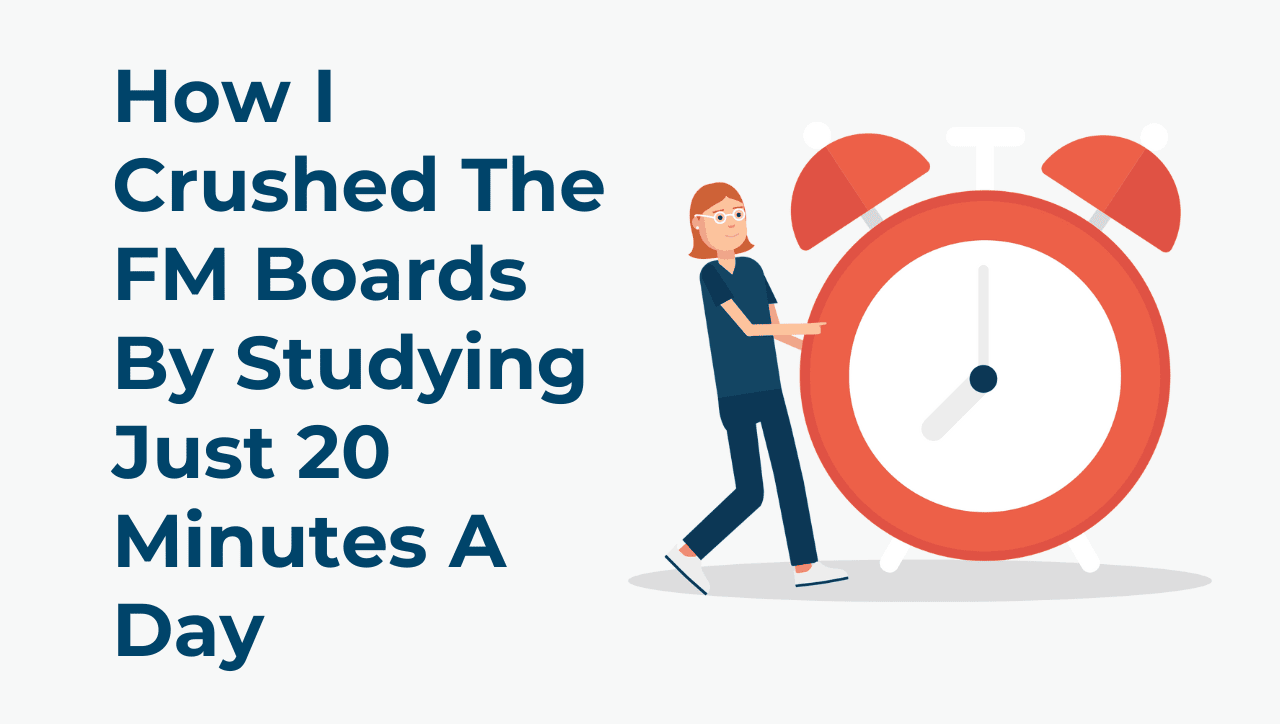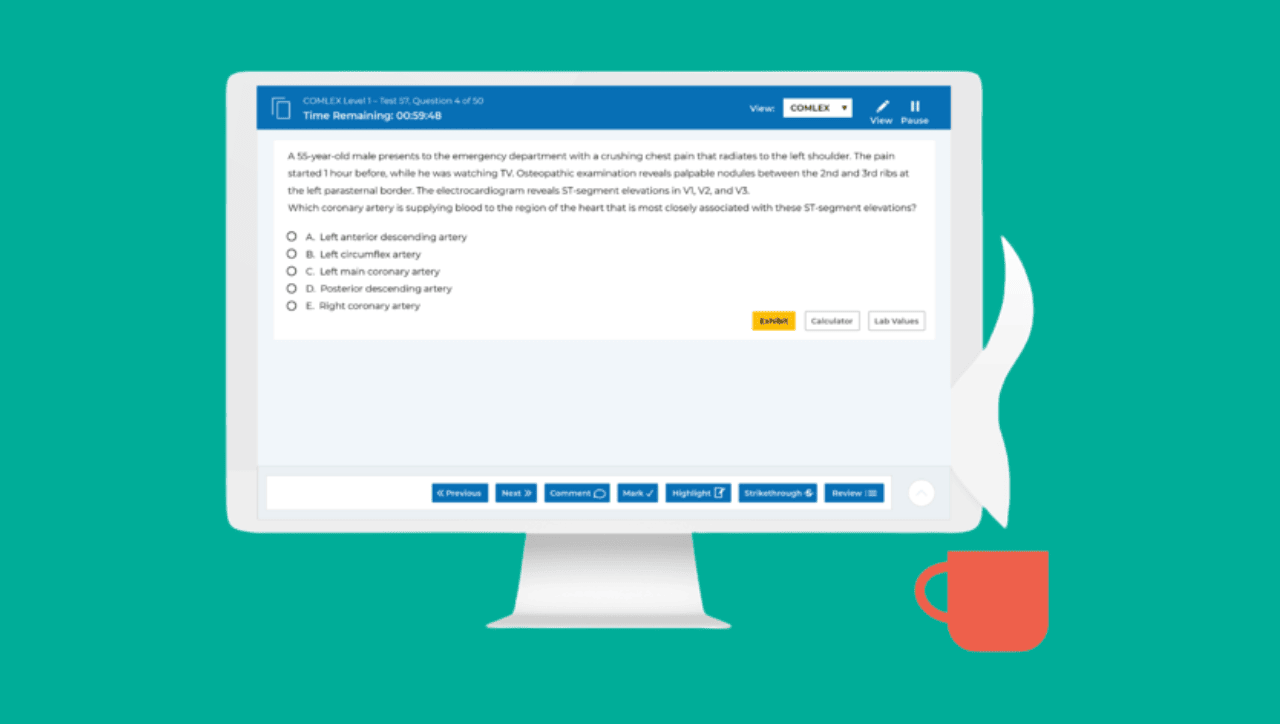Family Medicine Certification Exam: Everything You Need To Know for the ABOFP and ABFM
From afar, trying to tackle and pass the family medicine board examination may seem like a large and daunting task. However, all one needs to have is a long-term plan starting the 1st month of residency until the month of the board examination. In becoming a board-certified family physician, one must pass one of two board examinations: ABOFP (American Board of Osteopathic Family Physicians) or ABFM (American Board of Family Medicine); the structure of both exams is very similar, with one major difference. The ABOFP examination has an optional OMT practical exam (previously required) in addition to the written cognitive exam.
Often, you can prepare for both exams with the same q-bank. TrueLearn’s ABFM question bank offers add-on ABOFP questions for DOs preparing for their family medicine certification exam.
What is the FM CERT Exam
The family medicine board certification examination is provided to board-eligible physicians and board-certified physicians requiring re-certification. If successfully completed, the physician will become board certified. For the ABFM, the physician will be certified for the next 10 years and will require to be re-certified prior to the expiration date. For the ABOFP, the physician will be certified for 8 years and will require to be re-certified prior to the expiration date.
How Long is the Family Medicine Board Exam?
The ABOFP examination is a 450 minutes long and 400 question (multiple choice) examination with one 30 minute break (must be outside of the examination building during this time). The ABFM examination is a 380-minute exam with an optional 100 minutes of pooled break time that can be used in between each section of the examination. There are 300 questions (multiple choice) for this test.
ABOFP vs. ABFM Exam Format
The major difference between ABOFP and ABFM in comparison to the American Board of Internal Medicine (ABIM) is that a good portion of the exam for ABIM involves cardiology, critical care, and geriatric medicine. There is adolescent medicine and women’s health for the ABIM boards but no pediatrics or obstetrics. For the ABOFP, a large portion of the exam is osteopathic principles and practice with an even distribution of other facets of medicine (obstetrics, pediatrics, women’s health, etc) as seen in the link above. In the ABFM, a large portion of the exam is cardiovascular, musculoskeletal, and respiratory similar topics as the ABOFP boards with the exception of the osteopathic principles and practices.
How Long Do I Need to Study for the Exam?
It is recommended that studying for this board examination should begin during the first month of residency. At a minimum, one should have a study plan in place during the first month of residency, as this would be an excellent supplement to a resident’s didactics. I would recommend using a question bank to be familiar with the question style of your chosen exam. Along with a solid question bank, have a clinical evidence-based resource to build on your knowledge base. There are numerous board review books on the market but using AAFP (American Academy of Family Physicians) resources is more than sufficient.
I began studying for boards during the middle of my first year using TrueLearn FM Prep questions, AAFP board review questions, and the AAFP board review course.
During my second year of residency, I would complete one set of old in-service exam questions monthly and began reviewing the osteopathic principles and practices on the weekends. For those who are re-certifying and have been studying fairly on a regular basis, it is more dependent on the physician. For those who are re-certifying and have not studied at all for their board examination but are fulfilling their CME’s, then a minimum of 6 months of preparation is recommended.
Top 3 Things You Need to Know If You’re Taking The FM CERT Exam
- Know the location of the testing site. It is one thing to see the location of the testing site per your GPS device, but it is very important to verify the location by driving to the site the day prior to your test to visualize the location. There have been times where user error or technological glitches have resulted in going to the wrong location and unfortunately being late for the exam.
- Rest and relax on the week of your examination. During the week of your examination, you should be winding down in your preparation for the examination. During this week, increase your time relaxing, exercising, and obtaining a sufficient amount of sleep. The exam is a full-day ordeal, and doing activities that will preserve your energy, focus, and health will reduce your chances of being burned out prior to the exam.
- Be up to date with the current testing rules, regulations, and policies for the exam.This is important as a violation to the testing policies can result in the delay or postponement of your examination. To save yourself a lot of time, money, and heartache, it is best to review this on the week of the exam to make sure you are good to go on exam day.


